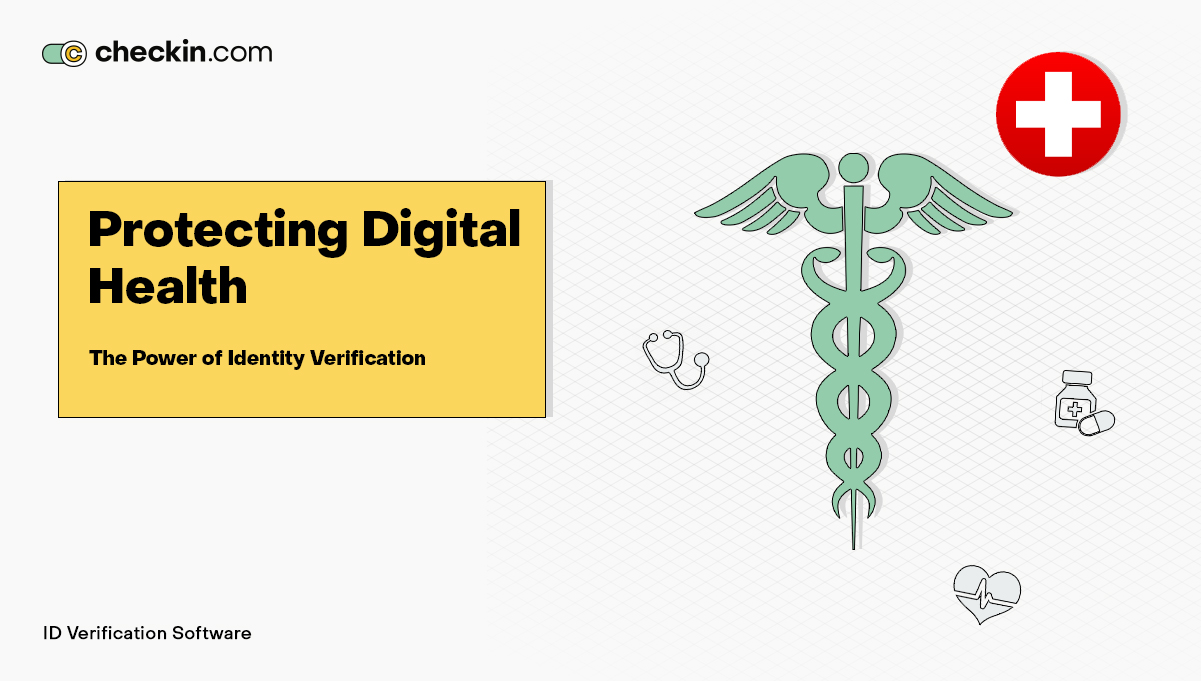
Guarding Health Online: The Power of Identity Verification
1 Mar 2023
Have you ever marvelled at the sheer convenience of online health services? The ability to consult a doctor, refill a prescription, or even book an MRI scan, all from the comfort of home.
But with this great power of digital health, comes the great responsibility of safeguarding our sensitive health information. This is where id verification service comes into play, helping to protect patient privacy and ensure regulatory compliance. Let’s unravel this intricate weave of technology and healthcare!
The Digital Health Revolution
The digital revolution in healthcare has transformed our medical experiences.
However, along with benefits like:
- 24/7 access to healthcare services
- Teleconsultations, negating geographical barriers
- Digital health records, making healthcare data easily accessible
we also face the challenge of protecting sensitive personal information. Misuse of health data could lead to devastating consequences, from privacy invasion to identity theft.
Identity Verification
The need of the hour is a reliable shield that can protect our digital health interactions – identity verification. It ensures the person accessing health services is indeed who they claim to be, hence maintaining the sanctity of sensitive medical data.
Service Providers’ Innovative Solutions
Enter service providers, the unsung heroes in our story. They’re diligently crafting identity verification solutions that ensure patient privacy and regulatory compliance in online health services.
How does it Work?
Harnessing technologies like AI, biometrics, and machine learning, these solutions function as the gatekeepers of online health services. Here’s a snapshot:
- Biometric verification: This involves using unique biological traits, like facial features, to verify identity.
- Document verification: Authenticity of an ID document provided is checked.
- Data cross-verification: Cross-checking the provided information against various databases.
Identity Verification: More than Meets the Eye
These tools serve a dual purpose – they not only verify identity but also ensure compliance with healthcare regulations like HIPAA. They act as a robust defence against data breaches and fraud, thus preserving the trust in digital healthcare services.
Identity Verification and Digital Health
As digital health services continue to evolve, we can expect identity verification to become even more robust and efficient. We may see wider use of biometric technologies, enhancing the security of online health interactions. The integration of blockchain technology could also ensure more secure and transparent data storage.
Moreover, there could be increased focus on user-centric design, making the verification process more seamless and less intrusive. The horizon of identity verification in digital health looks promising, aiming to make online health experiences safer and more efficient.
The Critical Role of Regulation in Digital Health Services
Understanding the regulatory landscape for online health services is equally important as understanding the technology involved. Digital health, as an emerging field, is subject to numerous regulations aimed at safeguarding patient health data.
One such critical regulation in the United States is the Health Insurance Portability and Accountability Act (HIPAA), which mandates that any entity dealing with protected health information (PHI) must ensure the security of that information.
Regulations like HIPAA require organizations to implement technical safeguards, such as encryption and identity verification, to ensure that only authorized individuals can access PHI. These measures are critical in protecting the privacy and security of patient data and can help mitigate risks such as data breaches and identity theft.
The Human Element: Patient Experience and Perception
While technological advancements and regulatory compliance are key components of online health services, patient experience and perception also play a crucial role. Patients need to trust the system for it to work effectively.
The identity verification process must be easy to understand and user-friendly. Patients are more likely to use digital health services if they feel confident in the security measures in place.
Moreover, the communication about these security measures is also critical. Service providers need to clearly articulate the benefits of identity verification to patients. By doing so, they can help assuage any fears or concerns patients may have about using digital health services.
Conclusion
As we step further into the era of digital healthcare, the role of identity verification becomes increasingly significant. It stands as a vanguard, protecting our sensitive health data and ensuring compliance with healthcare regulations.
Service providers, with their innovative solutions, are pivotal in this journey. As we move forward, we can expect these solutions to become even more advanced and user-friendly, making our digital health experiences safer and smoother.
FAQ
What is the purpose of identity verification in online health services?
It verifies the user’s identity, protects patient privacy, and ensures compliance with healthcare regulations.
How does identity verification work?
It uses technologies like AI and biometrics to verify identity, authenticate ID documents, and cross-verify data.
Who is developing these identity verification solutions?
Various service providers are devising innovative solutions to bolster identity verification in online health services.